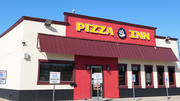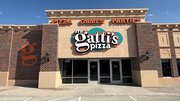Article
Who's the boss? Tips for avoiding joint employer liability
Franchisors must clearly define their roles to exclude control over the terms and/or conditions of franchisee's employees.

October 28, 2014 by Brenda Rick Smith — Editor, Networld Media Group
The National Labor Relations Board's recent announcement that it intends to name McDonald's USA LLC as a "joint employer" has raised some alarms among franchisors.
Recognizing franchisors as joint employers alongside franchisees means liability in cases involving wages, sexual harassment, worker's compensation, etc., could shift to franchisors, said Mark Seibert, president of the iFranchise Group, in a recent webinar. That could make franchisors an attractive target for litigants seeking deep pockets.
But franchisors shouldn't panic, he said.
"Nothing has really happened. We don't know the underlying facts with the McDonald's cases," said Seibert. "Even if the NRLB ruling is upheld, each fact must be considered."
The question comes down to who has day to day operations control over employees, said Seibert. The current standard says that whoever has direct, substantial control – whoever makes hiring decisions, scheduling decisions, termination decisions -- over employees is considered the employer.
The key for franchisors, said Seibert, is in clearly defining their roles to exclude control over the terms and/or conditions of the franchisee's employees. Some tips:
Retain a franchise law attorney to review franchise agreements and other key documents and practices.All legal documents should specify that the franchisee is responsible for all employee-related issues, from hiring to scheduling to termination.
Focus on brand standards. Be clear that your role as the franchisor is to clarify and enforce brand standards. Make sure all corporate personnel, particularly those who work directly with franchisees, are clear on their role, and clear that they must distance themselves from employment issues.
Write a field consultant manual. Train field managers to separate themselves from any employment-related decision making or direction. Field staff should address training and other concerns to franchisees or managers, not to crew members in stores.
"Field staff should focus on brand standards, not employment practices," said Seibert.
Signage in all franchisee-owned locations should clearly indicate that the location is independently owned and operated. That messaging should carry through other communciations as well, such as letterhead.
Practice clear, consistent recordkeeping. Document all requests from franchisees related to employment issues, and keep records of all responses. For example, if a franchisee asks you to look at resume for potential employees, decline to do so and document your response.
"This documentation can be your best defense," said Seibert, should a question ever arise about a franchisors involvement in hiring or other employment-related practices.
Don't include an employee handbook in your operations manual.Focus on brand standards and best practices instead. Have operations manuals reviewed by a franchise law attorney.
Point franchisees to outside employment experts when possible, and document. If you must speak to human resources-related topics, issue guidelines rather than dictates. Descriptions should tie back into protecting the brand, said Seibert, and you should emphasize that the franchisee's control over employee relations is absolute.
Develop tests and "mystery shop" to make sure lessons have been learned."The recent actions of the courts and the recent actions of the NRLB are not yet at the point where we need to start being overly worried about them. But should be practicing best practices," said Seibert. "If we take care that we don't cross the line, we should have little to worry about in the immediate future."
 ChatGPT
ChatGPT Grok
Grok Perplexity
Perplexity Claude
Claude








